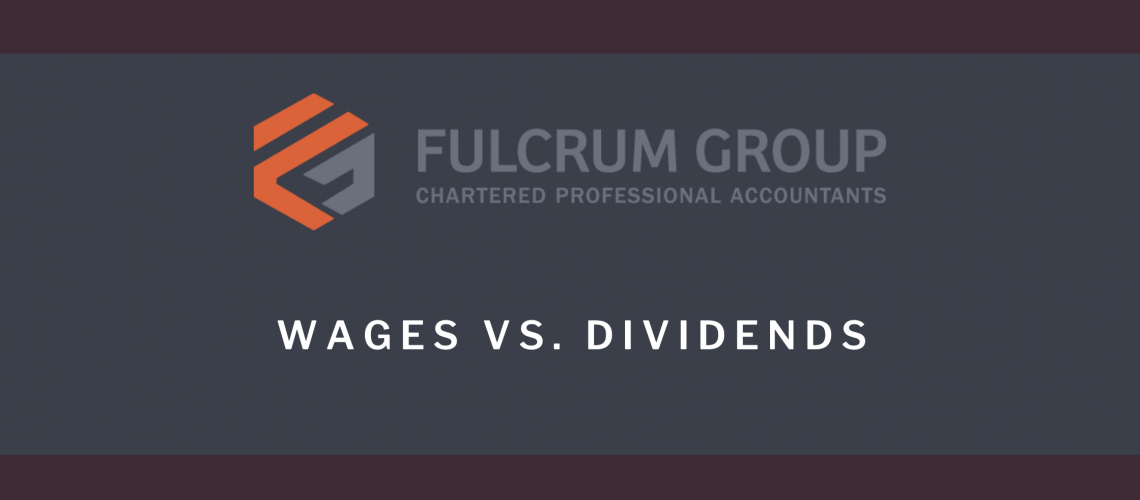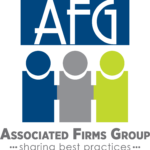Owners of corporations can pay themselves with wages, dividends, or a combination of both. A common question for these owners is what is the best way to pay themselves. There are advantages and drawbacks to both, and it depends on the circumstances of the owner.
Factors Encouraging Dividends
- CPP savings. CPP must be paid on wages. Paying remuneration by dividend saves the shareholder their personal portion of CPP, and the company portion.
- Refundable dividend taxes. Corporations pay high rate tax on investment income. Dividends cause refunds on these high rate taxes, where salaries cannot. Salaries can be deducted against high rate investment income provided they are reasonable, but CRA may not agree with your reasonability determination.
- Cumulative net investment losses on personal tax returns. These losses can impede access to the capital gains deduction. These losses are reduced by dividends, but not salaries.
- Unusable losses are not increased. Unusable losses may be generated if a salary is taken and there are no positive future earnings to offset these losses. This means that personal income tax will be paid, without the benefits of a corporate tax deduction. A dividend will not generate additional losses that will not be used, and the dividend tax credit will be available on personal taxes. However, ensure that there are enough retained earnings in the company before paying dividends, so the company is not paying dividends out of a deficit.
- No payment of source deductions. Salaries require a payroll account to be created with CRA and for source remittances to be paid throughout the year, typically each month. This can expose the company to non-deductible interest and penalties of 3-10% if not paid on time. If remittances are continually paid late, penalties can be up to 20% of remittances owing. However, if dividend income results in personal taxes owing greater than $3,000, this may subject the owner to quarterly personal tax instalments.
Factors Encouraging Salaries
- Personal tax deductions. Some personal tax deductions are available against salaries, but not dividends. Deductions that can be made against salaries, but not dividends, include childcare costs, moving expenses, disability supports deduction, and employment expenses. If you are someone who has paid alternative minimum tax (AMT), receipt of dividends can worsen an existing AMT concern, or delay recovery of AMT paid in previous years.
- Government benefits.
- Benefits such as the Canada child benefit (CCB) and old age security (OAS) are affected by net income. Dividends are grossed-up on the personal tax return (i.e. an ineligible corporate dividend of $100,000 paid is $115,000 of income on the personal tax return). The gross-up can result in reduced eligibility for the CCB, or require a clawback to be repaid on OAS payments.
- Provincial benefits for families with children are sometimes dependent on earned income, which includes salaries, but not dividends.
- Personal financing. Mortgage and loan applications can often be improved where a consistent level of salaries is demonstrated.
- Retirement savings.
- CPP retirement and disability payments and based on pensionable earnings, which can only be generated with salaries. For individuals who have trouble saving, CPP may form most of their retirement income.
- RRSP and individual pension plan. Contribution room is generated by salaries, not dividends.
- Lower-income levels. If the owner wants to limit their amount of personal remuneration, paying a low salary could increase credits and benefits such as the Canada employment tax credit, Canada workers’ benefit, and refundable medical credits. Dividend tax credits may not be fully utilized when personal remuneration is in the lower tax brackets.
- Lower personal tax bill. Source deductions are required to be made during the year to CRA. When your personal taxes are filed, the amount of tax owing is already submitted to CRA. If dividends are paid, these source deductions are not made, and the owner may not have enough cash at tax time to pay off their personal tax debt.
- Non-taxable benefits. These benefits include participation in private health services plan or reasonable travel allowances. These are available if received in the shareholder’s capacity as an employee. Receiving a salary provides further support that an owner is an employee. If only dividends are received, it is difficult to make the case that the owner received benefits as their capacity as an employee.
- Tax on split income. If a dividend is received for a shareholder that is not active in the business, it could be subject to tax at the highest personal tax rates. Salaries can be paid to inactive shareholders as long as the amounts paid are reasonable.
- Government benefits and supports. These are typically dependent on having payroll. This has been especially significant in 2020 with most emergency support being offered by the government is being made to support employment.
Best Practice
There are many reasons to choose salaries or dividends, depending on shareholder circumstances. The most common strategy is to take a minimal salary and choose whether additional remuneration should be paid by salary or dividends. For example, a minimum salary of $6,000 enables advantages on the personal tax return such as the employment tax credit, and deductions only available against salaries, while only costing minimal CPP. Taking a regular salary to cover personal living expenses and remitting regular source deductions also reduces any stress of the requirement to deal with significant drawings when year-end financial statements and tax planning are done.



